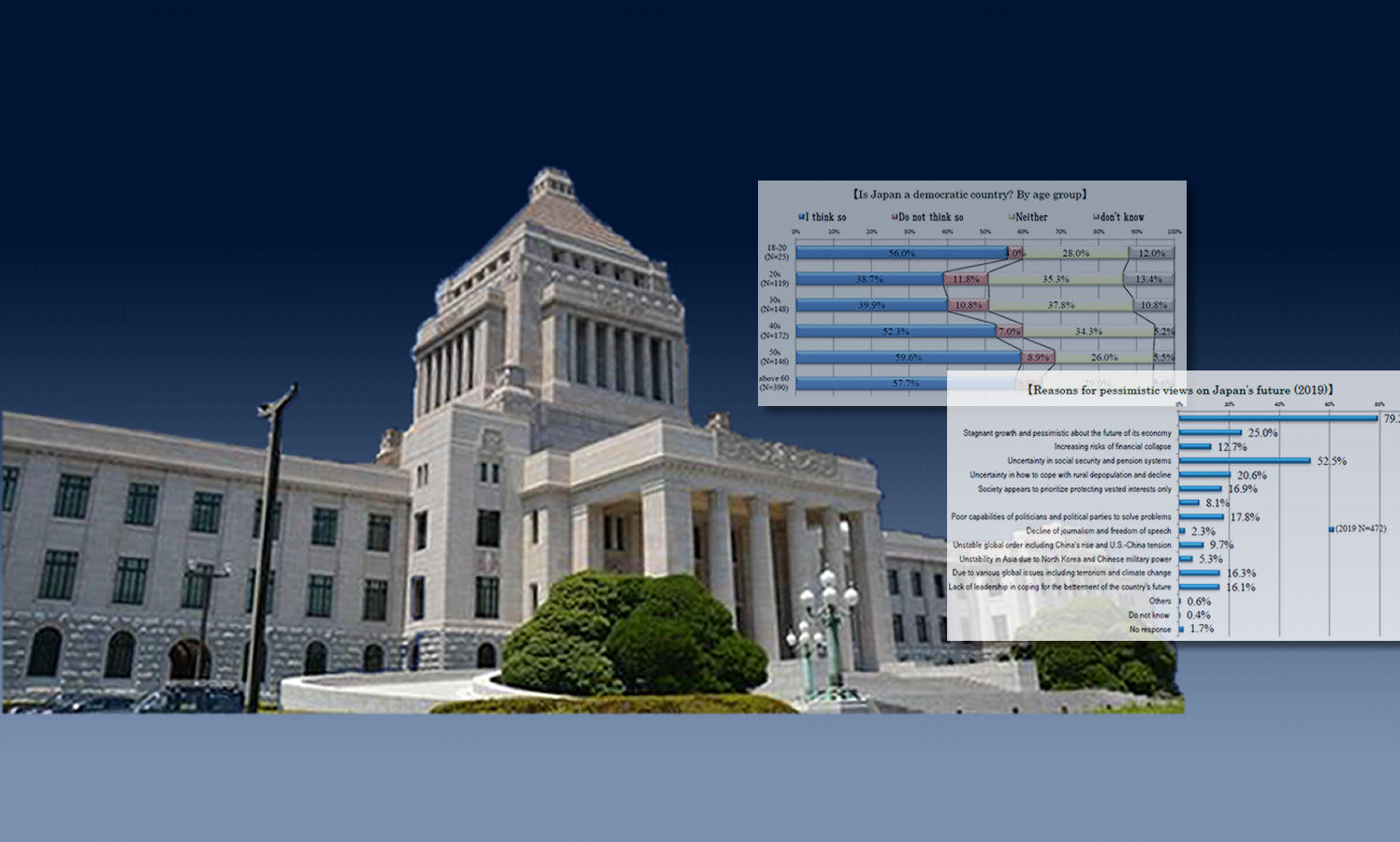The Upper House election campaign has entered its final stages, but public interest seems to be not as high as expected. This apparent apathy is because we do not know what this election is asking the voters to consider.
No one likes consumption tax hike and everyone is happy to be given cash payments. Few would deny that the household budget is of the utmost importance to voters. Yet, during the ongoing election campaign, few candidates discuss how to create the economic growth that generates the necessary financial resources to maintain the social security system and the national budget.
The ruling party, the Liberal Democratic Party of Japan, has set out a variety of policy goals and raised new issues, but it has failed to achieve much. While its monetary and fiscal policies have serious side effects themselves, the party only emphasizes its performance. On the other hand, the opposition parties are campaigning only by saying "No" to the LDP or its infeasible wish-list, without being able to put forward alternative policy measures.
The only single common policy measure is the redistribution of incomes where all political parties are competing with each other. But many people view it only as a ploy to win votes and are disinterested. In the recently published opinion survey on Japanese democracy, 34% of the respondents said that the future of Japan is the issue that should be addressed in the upcoming election.
The rapid aging of society and decline of the population will have a serious impact on the social security system in the near future and the fiscal management of local governments in rural areas. The number of single elderly households has increased even in the Tokyo area, so as the phenomenon of solitary deaths, and elderly people suffering from dementia wandering from their homes and becoming lost. The recent murder case involving a father who stabbed his son who had shut himself off from society in his parents' home shocked the country. However, very few political parties address such issues in their manifestoes. Looking at the international political environment, the U.S.-China trade dispute could easily prolong the division of global economies. Most Japanese are deeply concerned and anxious about many issues, from their own future lives to the destruction of the global environment.
Since the 2004 general election, The Genron NPO has evaluated Japanese political parties' manifestoes and published the results. The reason why we, as a think tank, have done this evaluation in collaboration with scholars and experts at each election is to offer information to voters in order to enable them to make their own judgements on the political parties and their policies.
An election is a time when politicians make their pledges to voters. The politician who is accountable to voters will implement policies in accordance with his/her pledges. The people in turn, will re-evaluate the politician's performance in the next election. Such a cycle works well in a sound democratic system, and the tension between the politician and the people will create a strong democracy.
However, the manifestoes of the political parties have been watered down since the Democratic Party's victory in the 2009 general election, and it is difficult even to award even a passing grade under our evaluation standard every time. Rather, political parties and politicians have become more interested in winning elections than tackling the variety of challenges the country faces. This is partly due to the current electoral system. The poor scores in our policy evaluation reflect Japanese political parties' sluggish attitude to developing policies for the future of the country.
Over the past few years, we have held discussions with many political leaders and researchers around the world, realizing that the mechanisms of democracy are beginning to splinter in the major countries of the world. The expansion of economic disparities due to globalization, the conflict of domestic interests and domestic discontent are creating extreme nationalism. Such a global trend has put established European political parties in difficult positions and has become a powerful prop for the Trump administration in the United States.
In the world, there is an understanding that Japan's political stability is based on the maturity of its democratic system. However, many studies have revealed that the democratic structure is becoming unstable also in Japan. Moreover, our opinion survey conducted earlier shows that democracy in Japan is in a more critical condition than we thought.
I would like to urge you to read the details of the survey results. It is notable that nearly half of the survey participants are pessimistic about the future of Japan, and more than half think that political parties are incapable of solving the problems our country faces. Above all, only about 20 percent of people trust Japanese political parties and the Diet - the national parliament. The tendency of political distrust extends to the entire nation, especially among people in their 20s and 30s. And in those age groups, there is growing skepticism about Japanese democracy itself. I believe that this is the greatest test for Japanese politics.
The distance between the voters and the political parties in Japan that do not take the people and issues seriously is increasing. I would like to encourage you to read the political parties' election manifestoes. That of the ruling party has become more blurred in order to avoid controversy. Those of the opposition parties are full of voids in their policies. Both the ruling and opposition parties avoided the "20 million yen issue" (the estimated amount an average elderly couple will need when they retire), which is of the utmost interest to voters.
Such phenomena illustrate that the political parties are hardly functional in policy management and are trying to avoid seriously facing the concerns of the public.
That's why I dare to argue that the upcoming Upper House election is a crucial one that will test democracy in Japan. Japanese political parties and politicians are asked to address the issue of how to make Japanese democracy functional. Voters as well should carefully watch whether each candidate is seriously considering this question.
We, who hold sovereignty in a democratic society, should not accept an election without political pledges to address the issues in the future.
Yasushi Kudo
President
The Genron NPO


Post a comment